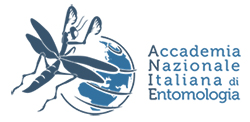
Laura Beani
laura.beani@unifi.it
BIOGRAPHY
Born 20 January 1955; Florence Italy; married; two sons.
Bachelor of Arts, University of Florence (15/6/1978).
Italian Game Conservancy Fellowship (1983-1988).
Bachelor of Biological Science, University of Florence (8/7/1987; Thesis advisor: Prof. L. Pardi).
PhD in Animal Biology (Ethology) University of Florence (2/3/1992; Tutor: Prof. F. Dessì-Fulgheri).
Post-doc in Ethology, University of Turin (1992-93; Tutors: Prof C.Giacoma, Prof G.C.Panzica).
Post-doc in Entomology, University of Florence (1999-2000; Tutor: Prof.S.Turillazzi)
CURRENT POSITION: Associate Professor, Department of Biology, University of Florence.
TEACHING EXPERIENCE:
Course: Evolution of Behavior (Psychology), 2005 to present.
Course: General Biology and Ethology (Psychology, Primary Education Science), 2005 to present.
Course: Ethology (Biology of Environment and Behavior), 2005 to present.
ELECTED POSITIONS:
Secretary of Italian Section of International Union for the Study of Social Insects, 2005-2010.
Secretary of Italian Society of Ethology (SIE), 2005-8.
RESEARCH INTERESTS: 1) Sexual behavior of social insects and Galliformes. 2) Host-parasite interaction: physiology and behavioral manipulation. 3) Insect Immunity System. 54 Nuclear and Mt-DNA in parasite insects. 5) Chemical and visual communication in social insects. 6) Bio-acoustic. 7) Hormones and behavior.
Author of 91 publications (International Journals, Chapters of volumes and Books) and about 100 scientific works presented at National and International Conferences.
Beani, L., & Turillazzi, S. (1988). Alternative mating tactics in males of Polistes dominulus (Hymenoptera: Vespidae). Behavioral Ecology and Sociobiology, 22(4), 257-264.
Beani, L., & Dessì-Fulgheri, F. (1995). Mate choice in the grey partridge, Perdix perdix: role of physical and behavioural male traits. Animal Behaviour, 49(2), 347-356.
Beani, L., & Turillazzi, S. (1999). Stripes display in hover-wasps (Vespidae: Stenogastrinae): a socially costly status badge. Animal behaviour, 57(6), 1233-1239.
Hughes, D. P., Kathirithamby, J., Turillazzi, S., & Beani, L. (2004). Social wasps desert the colony and aggregate outside if parasitized: parasite manipulation? Behavioral Ecology, 15(6), 1037-1043.
Beani, L., Dallai, R., Cappa, F., Manfredini, F., Zaccaroni, M., Lorenzi, M. C., & Mercati, D. (2021). A Strepsipteran parasite extends the lifespan of workers in a social wasp. Scientific reports, 11(1), 1-10.
